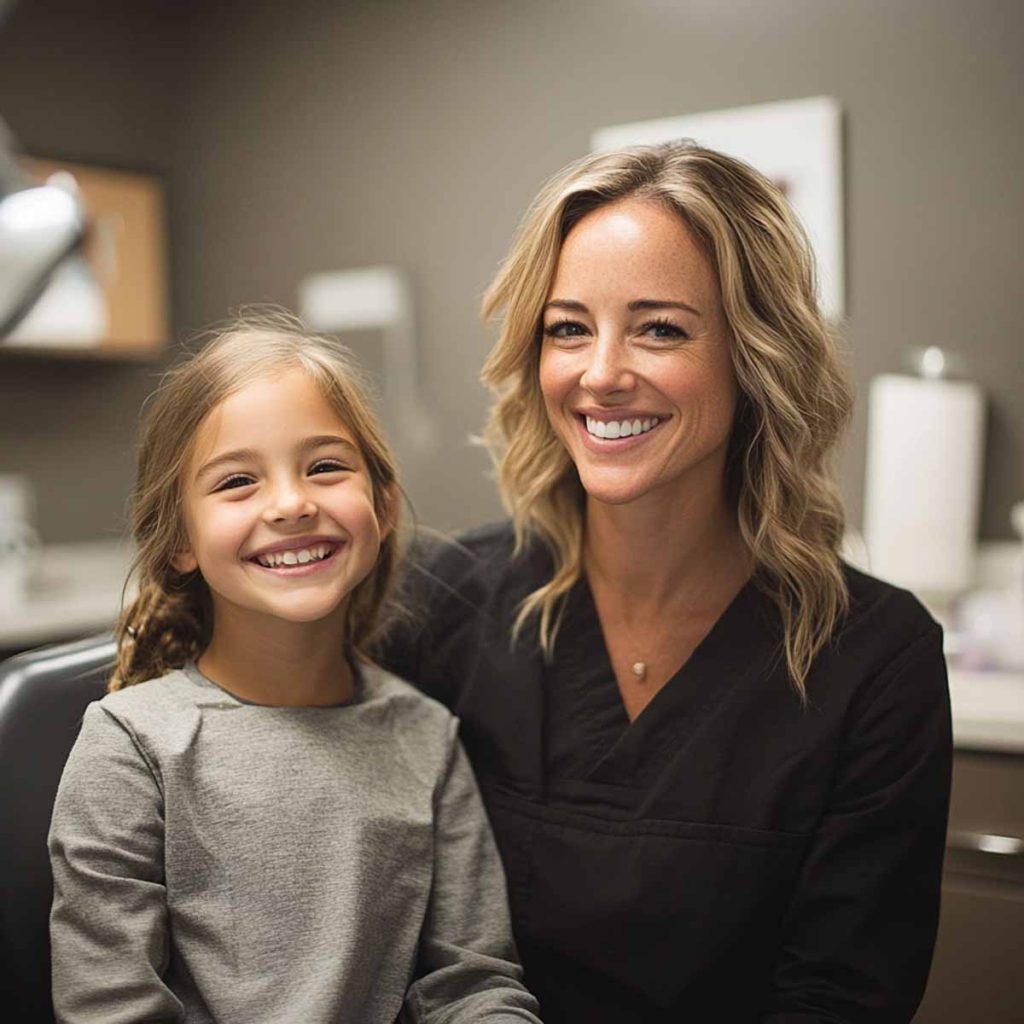If your child struggles with dental anxiety, you’re not alone—and we’re here to help.
For many children, a trip to the dentist can trigger overwhelming anxiety. The unfamiliar environment, equipment sounds, and fear of pain can transform what should be a routine check-up into a distressing experience.
At The Dental Anesthesia Center in St. Louis, we understand these challenges and have developed specialized approaches to helping children overcome dental anxiety.

Understanding Dental Anxiety in Children
Dental anxiety affects approximately 20% of school-age children, with symptoms ranging from mild nervousness to severe phobia.
Common signs that your child may be experiencing dental anxiety include:
- Trouble sleeping the night before a dental appointment
- Crying or showing physical distress when discussing the dentist
- Creating excuses to avoid dental visits
- Increased irritability as the appointment approaches
- Physical symptoms like stomachaches or headaches
Many factors contribute to dental anxiety in children, including:
- Previous negative dental experiences
- Fear of pain or injections
- Sensory sensitivities to sounds, tastes, or smells
- Separation anxiety from parents during treatment
- Feeling out of control in the dental chair
- Stories from friends or family members about unpleasant dental visits
Why Addressing Dental Anxiety Matters
Untreated dental anxiety can have serious long-term consequences for your child’s oral health. Children who fear the dentist often:
- Delaying necessary dental care, leading to more extensive problems
- Develop poor oral hygiene habits that persist into adulthood
- Experience more dental pain and complications
- Carry their dental anxiety into adulthood, continuing the cycle of avoidance
Strategies for Parents to Help Manage Dental Anxiety
Before the Appointment
- Choose a pediatric-friendly dentist: Look for a practice like The Dental Anesthesia Center that specializes in treating anxious children and offers sedation options.
- Use positive language: Avoid using words like “hurt,” “pain,” or “shot.” Instead, use neutral terms like “clean,” “healthy,” and “strong teeth.”
- Role-play at home: Practice dental visits with stuffed animals or take turns being the dentist and patient.
- Read children’s books about dental visits: Many excellent children’s books normalize dental appointments in an age-appropriate way.
- Schedule strategically: Book morning appointments when your child is well-rested and less likely to be cranky.
- Be honest but gentle: Answer questions truthfully but avoid unnecessary details that might increase anxiety.
During the Appointment
- Stay calm yourself: Children pick up on parental anxiety, so maintain a positive attitude.
- Bring comfort items: Allow your child to bring a favorite toy, blanket, or stuffed animal.
- Use distraction techniques: Engaging in conversations, counting games, or squeezing a stress ball can help.
- Praise brave behavior: Offer specific praise for cooperation, even small achievements.
- Consider your presence: While some children feel more secure with a parent present, others may behave better independently. Discuss this with your dental provider.
How The Dental Anesthesia Center Helps Anxious Children
At The Dental Anesthesia Center in St. Louis, we specialize in creating positive dental experiences for children with anxiety, including those with special needs. Our approach includes:
1. Child-Friendly Environment
Our office is designed to put children at ease with:
- Welcoming, colorful waiting areas
- Child-sized furniture
- Entertainment options
- Friendly, patient-centered staff trained in behavioral management
2. Tell-Show-Do Technique
We use a gentle approach to familiarize children with dental procedures:
- Tell: We explain procedures in child-friendly language
- Show: We demonstrate using models or simple examples
- Do: We proceed with the treatment once the child feels comfortable
3. Sedation Options for Children
For children with significant anxiety or special needs, we offer various sedation options:
- Nitrous Oxide (Laughing Gas): A mild sedative that helps children relax while remaining awake and responsive
- Oral Conscious Sedation: Medication taken by mouth that induces a deeper state of relaxation
- IV Sedation: Provides a moderate level of sedation administered through an IV
- General Anesthesia: Complete sleep during dental procedures, ideal for children with severe anxiety or extensive treatment needs
Our specialized training in sedation dentistry ensures your child’s safety and comfort throughout any procedure.
Special Considerations for Children with Special Needs
Children with autism spectrum disorders, sensory processing issues, or other developmental challenges often experience heightened dental anxiety. Our team has extensive experience working with special needs patients and can provide:
- Sensory accommodations (dimmed lights, reduced noise)
- Visual schedules and social stories
- Extra time for appointments
- Specialized behavioral techniques
- Appropriate sedation options when necessary
If your child experiences dental anxiety, you’re not alone. Help is available. The Dental Anesthesia Center in St. Louis specializes in creating positive experiences for anxious children and those with special needs.
